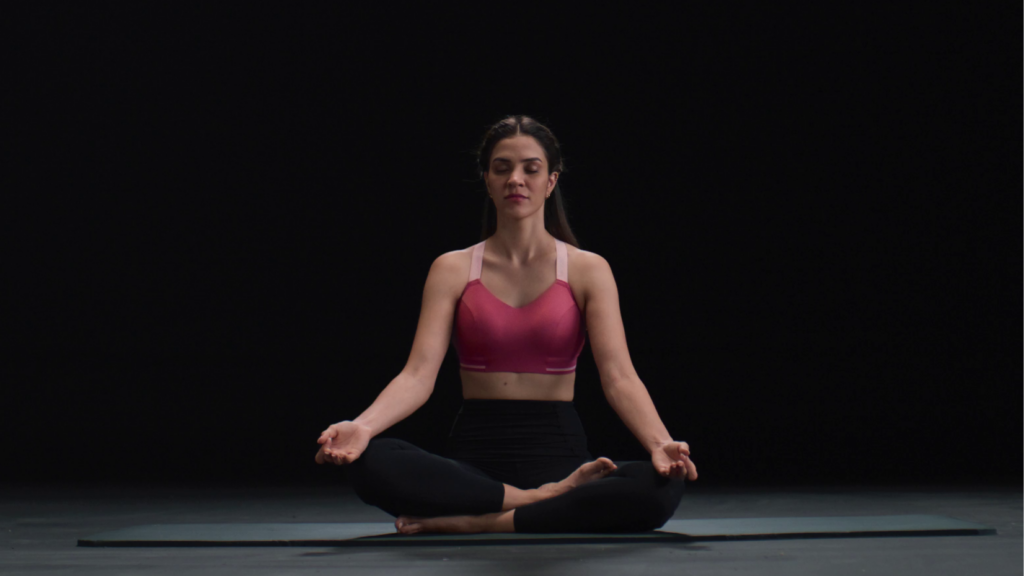When we start thinking about embarking on a journey of transformation, we often envision ourselves at the pinnacle of success. We are running that 5K, conversing in Spanish fluently, seeing an ideal body, or are getting a stellar review. However, once we really get down to work we quickly realize that making that change isn’t quite so easy.
In fact, most successful transformation journeys are a blend of small successes, small stumbles, support and encouragement from friends or community, big leaps of courage and vulnerability, some stalling and frustration, uncovering self-compassion, and then getting back to progress. And repeat.
When we are actively striving to introduce a change in our lives, one of the most invaluable resources we have is our attention.

Highlights
- Our brain likes the familiar, comfortable or routine since we’re wired to ensure our survival by following the path that is well-known,
- While the brainstem plays a part in selective attention, the neocortex modulates executive attention, which is instrumental in shutting out potentially distracting information,
- Practising meditation, with some level of intention and repetition, is a way to get increasingly better at training your focus towards the way your goals or intentions.
Consider for a moment – what we pay attention to and how we pay attention to it determines where our energy goes and what we bring into our life.
Why our brain is resistant to change
Our brains like the familiar, comfortable or routine, since we’re wired to ensure our survival by following the path that is well-known. This is why change can feel risky as the thought of heading into unknown or uncertain territory sets off alarm bells in the brain (specifically in the amygdala), even if the reality is that the risk could pave the path to to our own happiness.
In other words, when we try to make changes, the brain is quite likely to object and put up limiting beliefs. Thoughts like “you can’t do this” or “don’t do that, a disaster might happen” fly around and you begin to catastrophize. The option to stick with what’s comfortable and safe, like surfing the web or social media, rather than trying something new, can seem a lot more attractive. So, it’s easy to fall back into a pattern routine when you believe the limiting beliefs your brain is re-affirming.
Ultrahuman Take: Neuroscience of focus
According to a study, small eye movements called microsaccades (MS for short) significantly regulate neural activity during the attention period. What does that mean? When you glance at something, even furtively, it is intimately tethered to attention. We can perhaps author our own transformation through what we glance at!
Neuromodulators like dopamine, acetylcholine, and norepinephrine play a crucial role in attention and focus. While the brainstem plays a part in selective attention, the neocortex modulates executive attention, which is instrumental in shutting out potentially distracting information.

Training your focus towards change
The first essential step to make sustainable change is honing your attention by training your focus. Learn how to pause and acquaint yourself with the operating system of those routine patterns and motivations that are driven by a need to feel certain or safe.
Through practice, we can teach our brain what is important to pay attention to in respect to the life we want to live. That starts with training your focus! When you practise riding a bike, with some level of repetition, you get better at it. The same is true for playing an instrument, walking, learning a new language, and even eating habits.
Training your brain to attend to what matters to you is no different. Practising meditation, with some level of intention and repetition, is a way to get increasingly better at training your focus towards the way your goals or intentions. A review of studies reveals that even meditation novices perform better on tasks that test their skill to drown out distractions, while meditators who have been meditating for a long time display a significantly improved ability to concentrate for long periods of time.
Conclusion
In other words, if you want your brain to give weight to the things that will help you be more present, joyful, grateful, have stronger relationships, be more productive at work, meditation is a way of telling your brain… “Hey, this is an important thing I want to focus on in my daily life.” As we regain control of our minds through focused attention, it becomes a LOT easier to prioritize. We can sow the seeds of change that are set to blossom.
Disclaimer: The contents of this article are for general information and educational purposes only. It neither provides any medical advice nor intends to substitute professional medical opinion on the treatment, diagnosis, prevention or alleviation of any disease, disorder or disability. Always consult with your doctor or qualified healthcare professional about your health condition and/or concerns and before undertaking a new healthcare regimen including making any dietary or lifestyle changes.
References
- https://mcgovern.mit.edu/2019/03/14/ask-the-brain-how-does-the-brain-focus/
- https://www.ncbi.nlm.nih.gov/pmc/articles/PMC2752881/
- https://www.sciencedirect.com/science/article/
abs/pii/S027273581000173X
Originally posted on elishagoldstein.com. Modified and republished with permission.








